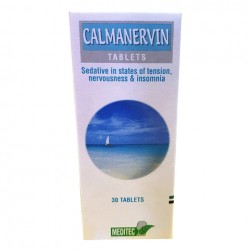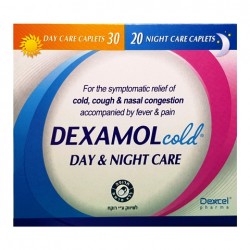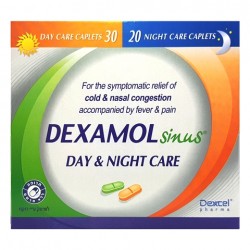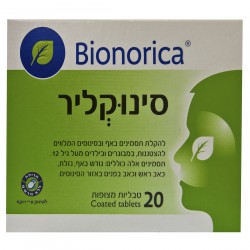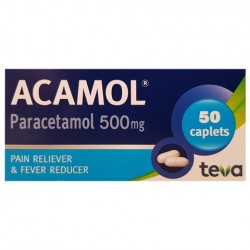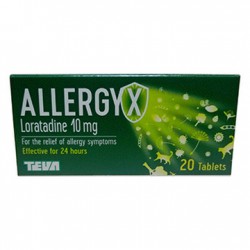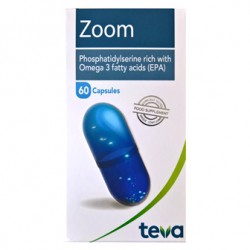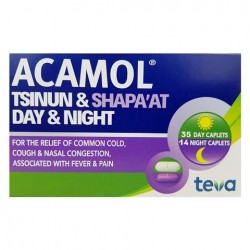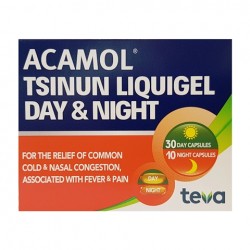Optalgin drops
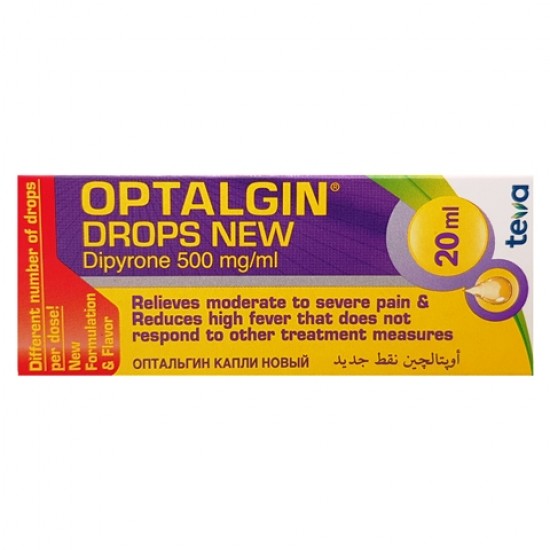
Drops for relief of moderate to severe pain, such as headache, toothache, and menstrual pain, and for reducing high fever that does not respond to other treatment measures.
Active Ingredients
Every 1 ml (20 drops) contains:
Dipyrone 500 mg
Indications
Therapeutic group:
The active ingredient belongs to the pyrazolone group.
Optalgin drops are intended for relieving moderate to severe pain, such as headache, toothache, and menstrual pain, and for reducing high fever that does not respond to other treatment measures.
Instructions
These drops are for oral administration only. It is best to take the drops with water. You can take this medicine before or after a meal.
Make sure the cap is closed securely after using.
Your dose will be determined based on the severity of the pain or fever and depending on your individual response to Optalgin. Dose can be determined by the patient’s age or weight.
In the absence of other directions from your doctor, the recommended dose is:
Adults and adolescents over 15 years old (weighing over 53 kg):
20-40 drops, up to 3 times a day.
Babies and children:
3-11 months (5-8kg) 2-4 drops, up to 3 times a day
1-3 years (9-15kg) 3-10 drops, up to 3 times a day
4-6 years (16-23kg) 5-15 drops, up to 3 times a day
7-9 years (24-30kg) 8-20 drops, up to 3 times a day
10-12 years (31-45kg) 10-30 drops, up to 3 times a day
13-14 years (46-53kg) 15-35 drops, up to 3 times a day
It is advisable to dose children by weight according to the table. You may determine the dose by the child’s age, only if you do not know the child’s weight.
These drops are not intended for babies weighing less than 5 kg.
Take the lowest effective dose.
Take the medicine at intervals of 6-8 hours.
Do not take more than three doses in 24 hours.
Do not exceed the recommended dose.
Consult your doctor if your fever lasts more than 3 days or pain persists for more than 7 days, even though you are using the medicine.
Use this medicine within 6 months of first opening the bottle, but no later than the expiry date listed on the package.
Warnings
Do not use Optalgin drops if you are sensitive (allergic) to the active ingredient dipyrone (metamizole) or other pyrazolones (such as propyphenazone, phenazone) or pyrazolidines (such as phenylbutazone, oxyphenbutazone); this also includes patients who have, for example, developed a significant reduction in counts of certain white blood cells (agranulocytosis) after using these active ingredients.
Do not use this medicine if you are sensitive (allergic) to benzyl alcohol or any of the other ingredients in this medicine.
Do not use this medicine if you have a known sensitivity to pain relievers (analgesics asthma syndrome or sensitivity to pain relievers experienced as rash/ angioedema). This applies to patients who react to pain relievers (such as salicylates, paracetamol, diclofenac, ibuprofen, indomethacin, or naproxen) with constriction of the lower airways or other hypersensitivity reactions such as rash with itching and bruising, runny nose and swelling (rash, rhinitis, angioedema).
Do not use Optalgin drops if your bone marrow function is impaired, for example after treatment with certain medicines used to treat cancer.
Do not use this medicine if you have a disorder affecting the production of blood cells.
Do not use this medicine if you have a hereditary disease which includes a disorder in the production of the color of your red blood cells (acute intermittent hepatic porphyria).
Optalgin Drops contains dipyrone and is associated with the following rare but life-threatening risks:
- Sudden circulatory failure
- Agranulocytosis (a severe disease caused by a sharp drop in the count of certain white blood cells). Stop taking Optalgin and consult your doctor immediately, if you get any of the following signs of possible agranulocytosis: sudden worsening of your health (for example, fever, chills, throat ache, difficulty swallowing), fever that does not go away or fever that keeps coming back, changes in mucous membranes that are associated with pain, especially in the mouth, nose and throat or in the genitals or anal area
If you develop signs of low counts of different types of blood cells (pancytopenia) (such as feeling generally unwell, inflammation or persistent fever, bruises, bleeding, and pallor) or signs of low platelet count (thrombocytopenia) (such as increased tendency to bleed, tiny bleeds under
the skin and in mucous membranes), stop taking Optalgin immediately and consult a doctor without delay.
Your doctor may monitor your blood count regularly and stop your treatment if certain changes occur.
There is a greater risk of agranulocytosis if treatment continues for longer than 7 days.
If you develop an allergic reaction to Optalgin, you are at a high risk of developing similar reactions to other pain relievers.
If you develop allergic reactions to Optalgin or other reactions mediated by the immune system (such as agranulocytosis), you are at a high risk of developing similar reactions to other pyrazolones and pyrazolidines (substances that are chemically similar), for example the pain relievers phenazone, propyphenazone, phenylbutazone, and oxyphenbutazone.
If you develop an allergic reaction to other pyrazolones and pyrazolidines medicines or to other pain relievers, or if you get another reaction mediated by the immune system, you are at a high risk of developing a similar reaction to Optalgin drops.
If you have any of the following effects, your risk of severe hypersensitivity reactions to Optalgin drops is significantly increased:
- Sensitivity to pain-relief and anti-rheumatic medicines that is experienced as itchy rash and bruising or swelling. If this happens, do not take Optalgin
- Attacks of breathlessness caused, for example, by asthma, particularly if you also have nasal polyps or a nose and sinus inflammation
- Chronic rash (urticaria)
- Hypersensitivity to coloring agents (such as tartrazine) or preservatives (such as benzoates)
- Sensitivity to alcohol experienced as sneezing, watery eyes, and severe flushing in the face which develop after consuming even small amounts of alcohol. This kind of sensitivity to alcohol may be a sign of an as-yet undiagnosed sensitivity to pain relievers
Patients at increased risk of hypersensitivity reactions, should only use Optalgin drops after the doctor has carefully weighed the potential risks against the expected benefit. If Optalgin drops are used in such cases, patients should be placed under close medical supervision, with emergency facilities available.
Anaphylactic shock may occur, particularly in susceptible patients. Special care is needed in patients with asthma or a tendency to develop hypersensitivity reactions.
There have been reports of life-threatening skin reactions (Stevens-Johnson syndrome, toxic epidermal necrolysis) following use of dipyrone. Stop treatment with Optalgin drops immediately if you develop a skin rash, often associated with blisters or damage to mucous membranes. Never take dipyrone again.
Optalgin drops can cause a drop in blood pressure. This risk is increased if you:
- Have low blood pressure, are severely dehydrated, have poor blood circulation, or are in the early stages of circulatory failure (for example following a heart attack or severe injuries)
- Have a high fever
Your doctor will carefully consider the use of Optalgin drops, will monitor the patient closely, and will take preventive measures (such as circulatory stabilization) to reduce the risk of a drop in blood pressure.
Optalgin drops may only be used with careful monitoring of your blood circulation, when avoiding a drop in blood pressure is necessary. For example in case of serious coronary heart disease and constriction that blocks blood flow in the vessels that supply blood to the brain.
There are reports of liver inflammation in patients taking dipyrone who developed symptoms within a few days to a few months of starting treatment. Stop taking Optalgin and consult your doctor if you develop symptoms of liver function problems, such as: nausea or vomiting, fever, tiredness, loss of appetite, dark urine, pale stools, yellowing of the skin or the whites of the eyes, itching, rash, or upper abdominal pain. Your doctor will check your liver function in these cases.
Do not take Optalgin drops if you have ever taken a medicine containing dipyrone and developed liver function problems.
In case of impaired kidney or liver function, you may take Optalgin drops only after your doctor has carefully evaluated the risk and the benefit and has taken suitable precautions.
If you are taking or have recently taken other medicines, including nonprescription medications and dietary supplements, tell your doctor or pharmacist. Particularly if you are taking:
- Cyclosporine (a medicine used to suppress the immune system) - your doctor will monitor your blood cyclosporine levels, if you are taking it at the same time
- Methotrexate, a medicine used to treat cancer and rheumatic diseases - if given at the same time, methotrexate may increase the risk of potential damage to blood production, particularly in elderly patients. This combination should therefore be avoided
- Acetylsalicylic acid (aspirin) - if you take low-dose acetylsalicylic acid to protect your heart, Optalgin drops may reduce the effect of aspirin on your platelets
- Bupropion - used to treat depression and to stop smoking - Optalgin drops may reduce blood levels of bupropion
- Chlorpromazine, a medicine used to treat mental disorders - using Optalgin drops at the same time may cause a serious fall in your body temperature
- Efavirenz, a medicine used to treat HIV/AIDS
- Methadone, a medicine used to treat severe pain or withdrawal from addiction to narcotic substances
- Valproate, a medicine used to treat epilepsy or bipolar disorder
- Tacrolimus, a medicine used to prevent organ rejection in patients with transplants
- Sertraline, a medicine used to treat depression
- Pyrazolones (the group of medicines to which Optalgin belongs) can interact with certain medicines: medicines to prevent blood clotting , captopril, a medicine for high blood pressure and certain heart disorders, lithium, a medicine used to treat mental disorders, diuretics such as triamterene, medicines for lowering blood pressure
It is not known to what extent Optalgin causes these interactions between medicines.
Tell your doctor that you are taking Optalgin drops before you have lab tests because the active ingredient dipyrone can affect the results of certain tests (for example, blood levels of creatinine, fats, HDL cholesterol, or uric acid). If you have to give a blood sample for any of these tests, take the medicine only after the blood sample has been collected.
It is advisable to avoid drinking any alcohol while taking Optalgin.
If you are pregnant or breastfeeding, think you may be pregnant or are planning to have a baby, consult your doctor or pharmacist before taking this medicine.
Only use during pregnancy after consulting your doctor, and only after your doctor has conducted a thorough risk-benefit assessment. In the third trimester (after week 28) you may use Optalgin drops only in the lowest effective dose. After week 28: Do not take more than three grams (120 drops) a day, and for no more than 3-4 days in a row.
The breakdown products of dipyrone pass into breast milk. While you are breastfeeding you may use Optalgin drops only if you do not respond to paracetamol or ibuprofen.
Elderly patients, patients in poor general health, or patients with impaired kidney function - reduce the dose because the elimination of Optalgin drops breakdown products may be slowed down.
Patients with impaired kidney or liver function - repeated high doses should be avoided, as the elimination rate is reduced when kidney or liver function is impaired. It is not necessary to reduce the dose if only used for a short time. There is no experience with long-term use.
Please do not consider this information as an alternative to consulting your physician or pharmacist.
For further information on instructions for use, risks and side effects, please read the patient package insert and consult your doctor or pharmacist.
Read the patient package insert carefully before starting to take any medication.









